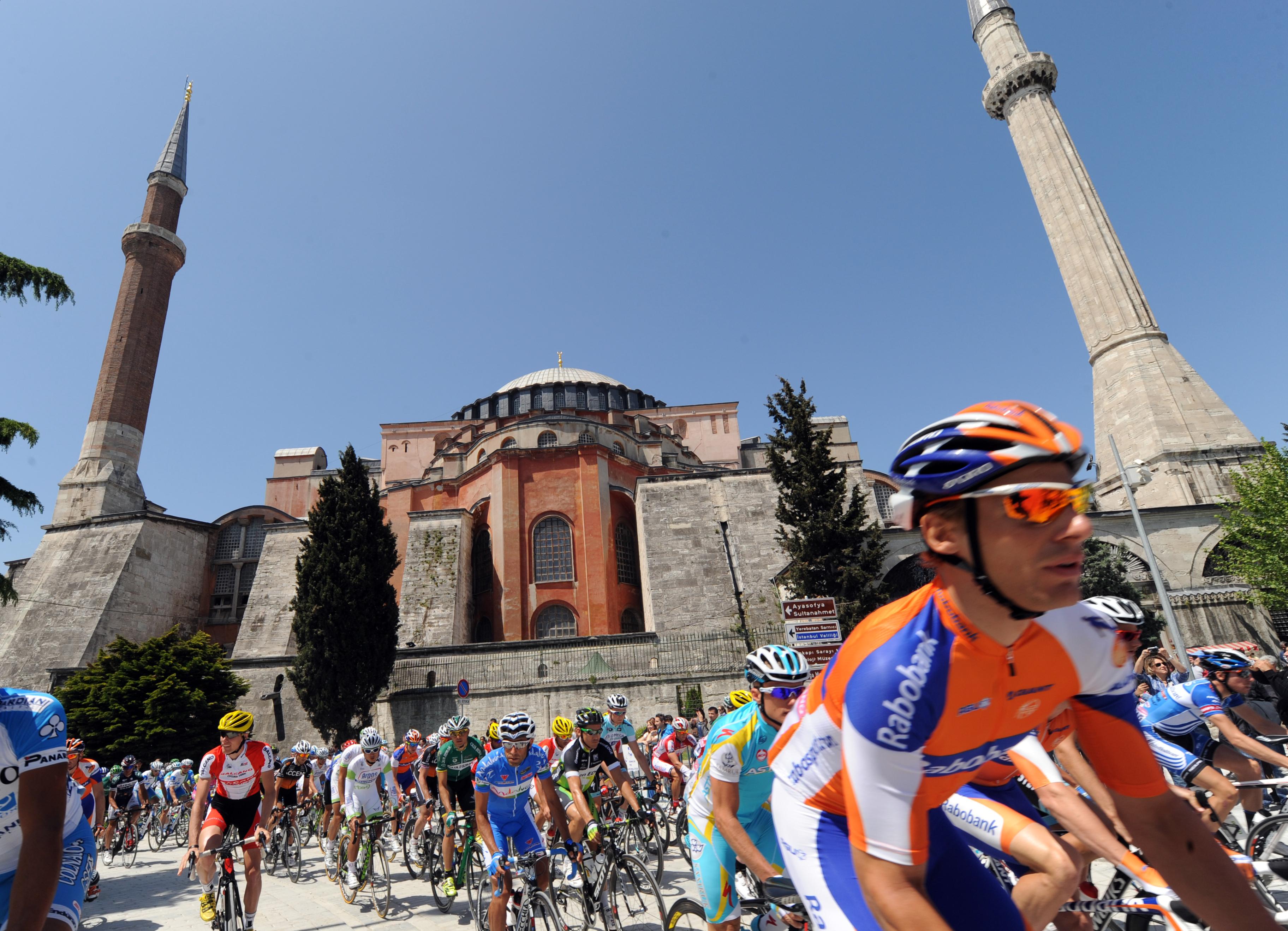As I was beginning to write this post, an email came into my inbox noting that the State Department has issued a travel warning for Turkey “because of threats against U.S. government facilities and personnel.” While such warnings are sadly not all that infrequent or necessarily cause for alarm, it can’t exactly be welcome news for Turkish authorities as the International Olympic Committee meets tomorrow to decide which of three cities—Istanbul, Madrid, or Tokyo—will host the 2020 Summer Games.
As Jere Longman of the New York Times notes, Istanbul—one of the world’s most beautiful and historic cities, is the sentimental favorite. And Turkey, which unlike Japan and Spain has never hosted the games before, would be the boldest choice and the one most in line with the IOC’s recent picks:
Making its fifth bid, Istanbul would offer a transcontinental Games that straddle Europe and Asia and place the Olympics for the first time in a predominantly Muslim country. It has a robust economy, widespread public support and a young population. That city’s selection would follow the choice of Beijing in 2008 to situate the Games in China and the selection of Rio de Janeiro to put the 2016 Olympics in South America.
Istanbul would allow the I.O.C. to keep pace with the global perspective of FIFA, which sent the 2010 World Cup to Africa with the selection of South Africa and awarded soccer’s 2018 world championship for the first time to Russia and the 2022 World Cup to Qatar in the Middle East.
Of course, in the midst of an unpredictable period of political transformation, it is also probably the riskiest choice, and recent events in Russia and Brazil will likely be weighing on the committee’s mind. In the wake of the global financial crisis, Japan and Spain carry their own baggage, but nobody really knows what economically booming Turkey’s politics will look like in 2020 or what the regional security situation will be.
Remember that the massive protests that brought international attention to Istanbul in May and June were initially sparked by the unpopular redevelopment of a relatively small park. The city’s building boom was already highly controversial before the demonstrations began, and Olympic plans would only accelerate the city’s dramatic transformation—and the inevitable backlash.
In some ways Turkey right now might be the worst-case scenario, politically, from the IOC’s perspective. The committee obviously has no problem dealing with authoritarians, but an increasingly authoritarian government combined with a vibrant civil society that still has the capacity to fight back against unpopular policies might be more headache than they can handle.
